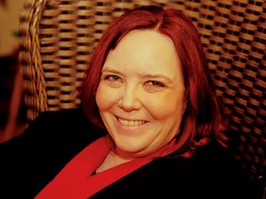by erin petrow
patients suffering from psychogenic non-epileptic seizures (pnes) are slipping through the cracks of the medical system due to misdiagnosis, long waits for specialists and a lack of followup care, say two neurologists based at royal university hospital.a university of saskatchewan research team lead by neurologists dr. jose téllez-zenteno and dr. alexandra carter recently published a paper finding that potentially around 2,000 patients in saskatchewan, and 72,000 across canada, may have been misdiagnosed as epileptic. even though canada’s medical system is well-equipped to diagnose psychogenic non-epileptic seizures (pnes), the condition is misdiagnosed about 40 per cent of the time as epilepsy, according to a u of s news release.“this paper is not the opinion of only a few doctors,”téllez-zenteno said. “it’s the opinion of all the specialists in epilepsy across canada.”he said these patients are actually suffering from pnes — a psychological condition, generally stemming from a history of physical abuse, physical neglect, sexual abuse or other trauma, that triggers seizures.“pnes events look very much like epileptic seizures, so it can be very difficult to diagnose them,” carter said. “so the way we diagnose any kind of seizure is we take these patients into the telemetry unit and we monitor them long term on eeg (electroencephalogram.)”this system is able to differentiate the two conditions by monitoring the brain’s electrical activity during a seizure — because epileptic patients show a change and pnes patients don’t.because téllez-zenteno and carter are the only epilepsy specialists in saskatchewan, the wait for testing can be up to two years. carter says it’s not unusual during this wait for patients who have already been misdiagnosed to be on medications that don’t treat the condition and sometimes make it worse.“when you have intractable patients, who are having more seizures that aren’t being controlled by medication, what ends up happening is we add more drugs at higher doses and that can lead to all kinds of things like hormonal difficulties and sometimes infertility,” carter said.when a seizure doesn’t stop and can’t be controlled by medication, these patients may also end up intubated in the icu, he added.the problems don’t stop once the proper diagnosis is made. the only treatment for pnes is cognitive behavioural therapy with a psychiatrist, which means the patient is bounced to a different doctor and the followup care isn’t as smooth as the neurologists believe it should be.to solve this issue, they suggest changes to bring a standardized approach to dealing with these patients — including neurologists continuing to follow up for at least six months after diagnosis, and an increase in resources for cognitive behavioural therapy so more specialists can provide it under the medicare system rather than requiring patients to pay out-of-pocket.another big issue in saskatchewan is lack of beds — currently there are only two — within the telemetry unit.téllez-zenteno said he is already in talks with the saskatchewan health authority to bring that number to four in hopes of significantly cutting wait times. “being able to diagnose quickly and having the cognitive behavioural therapy … it is very effective,” carter said. “it’s a 70 per cent chance of seizure freedom or seizure reduction — so it’s very important and it’s wonderful to see those patients get the help that they need.”epetrow@postmedia.com
share story
share this story
sask. neurologist: non-epileptic seizures are being misdiagnosed as epilepsy

 2 minute read
2 minute read





